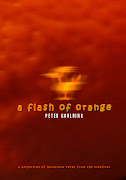 Billy the Kid
Billy the KidOne of the most beloved of all Shels legends was the affable and genial Billy the Kid, who became Shels mascot all through the fifties and into the early sixties. Certainly, no other farmyard animal has featured so strongly in the history of this great club, outshining even the unknown donkey that reversed over Drums goalie Jimmy Sixbellies in the 1920s, causing him to ass-end into heaven.
Billy was born on a farm just outside of Shillelagh. He was given the nickname ‘The Kid’ because that’s apparently what young goats are called and the name stuck. Sadly, he left the farm under a cloud when he was still quite young after an unsavoury incident with a cocker spaniel and a bowl of Instant Whip. Fortunately, the cloud was travelling to Dublin and on his arrival, Billy immediately enlisted in Mrs. Donnelly’s Drama School on Harcourt Street, dreaming of a career on the stage. And indeed, he was quite successful at first, winning wide critical acclaim for his interpretation of the role of Antonio in the Merchant of Venice at the Gate. “His habit of chewing the scenery was a work of genius,” wrote The Times and it became a sort of trademark in his acting career which came to an abrupt end in a performance of Picture of Dorian Gray, when he inadvertently ate the musical score.
Mrs Donnelly suggested he become a mascot and he was interviewed by the Shelbourne FC board of directors in July 1950. His willingness to help keep the match pitch short on weekdays won the day over his only other serious rival, a chicken called Arthur, and the legend was born.
From the start he was a firm favourite with the fans, not least for his tendency to headbutt the opposition mascots in the rear when they turned around. It may come as a surprise to many younger Shels fans but in the fifties many mascots were simply men cavorting about in an animal costume. Billy took great exception to this, calling them the Black and White Minstrels of the mascot world and set about exposing them big time.
(Nowadays, of course, all football club mascots are genuine animals and this is down mainly to Billy and his war on impostors.)
One of the most famous incidents, and one that created a plethora of letters in Mascot Monthly, was the spat with the Bohs Bull prior to an important league game at Dalymount Park. The Bull had been very much playing to the home crowd, flicking Billy with a towel and then denying it theatrically and basically getting right on Billy’s goat.
The Shels manager could see the warning signs and knew that Billy’s blood was boiling. “Billy,” he shouted. “Don’t be a hero!”
But it was too late.
With a snort of defiance, Billy put his head down and charged. The Bull turned tail and fled, Billy hot on his heels. At the penalty spot on the shopping centre end, Billy caught him and butted him right into the back of the net to a tumultuous ovation from the Shels faithful.
Of course, the League came down hard on Billy. He produced video evidence that he had been provoked but they still banned him for a record six weeks. “No butts!” they said, when he protested at the severity of the sentence.
Billy continued his mascot duties all the way into the sixties. Part of his pre-match ritual was to lead the faithful in singing such popular favourites as ‘Michael row the goat ashore,’ ‘Nanny, get your gun’ and ‘Naaaaannnny,how I love ya, how I love ya, my dear old nanny.’ Once he even daubed himself with rainbow-coloured paint and took to the pitch singing ‘Joseph and his goat of many colours.’
Ironically, as the sixties dawned and the fortunes of the club were due to take a sharp rise, Billy was put out to grass. “Butt, butt, butt...” he protested but the board were Adam Ant.
He spent his remaining days growing his beard and wandering forlornly around Fairview Park, listening to the crowd in Tolka Park on matchdays. On his death in 1961, as a tribute to his memory, the board of directors made him into sixty pairs of gloves.










